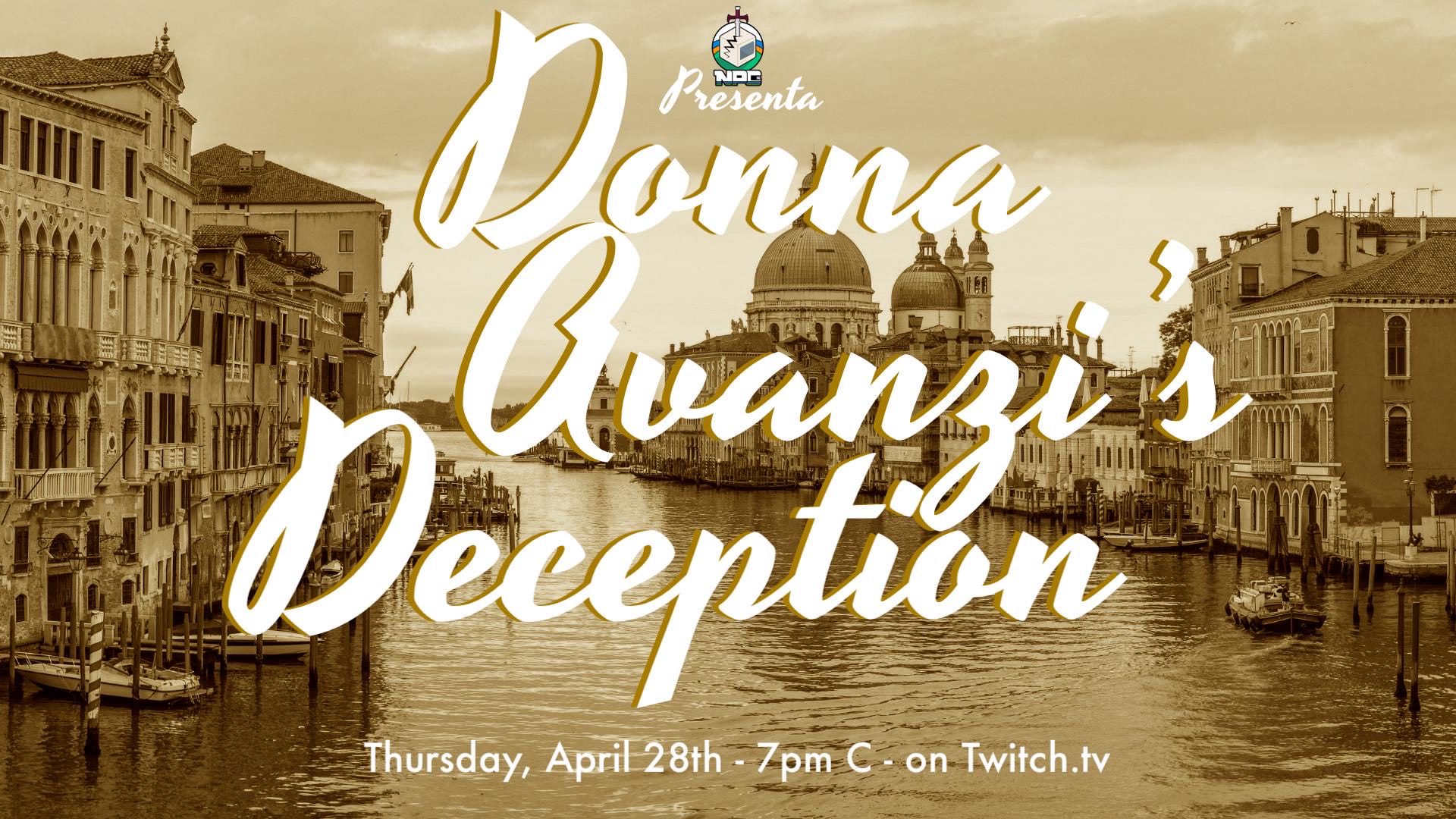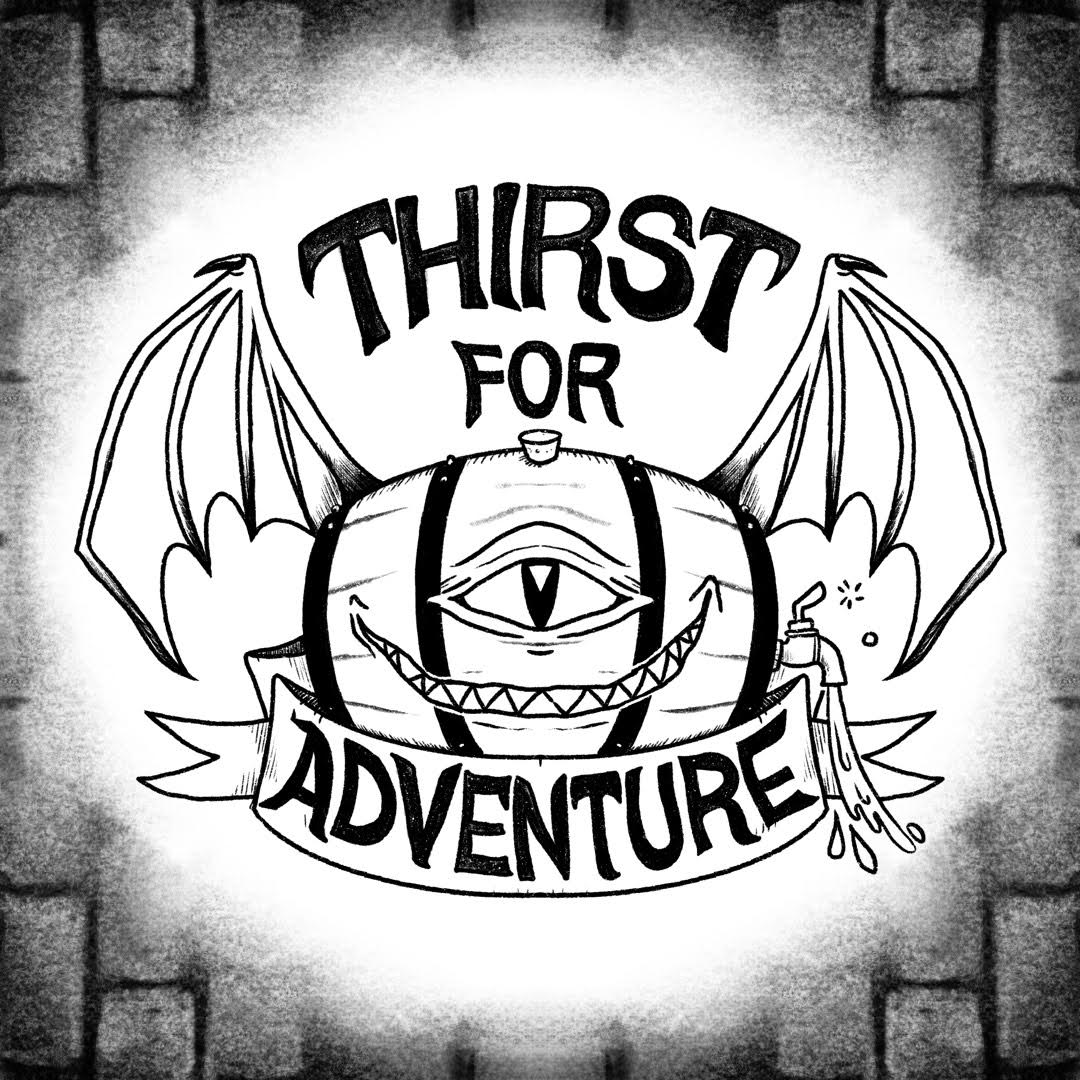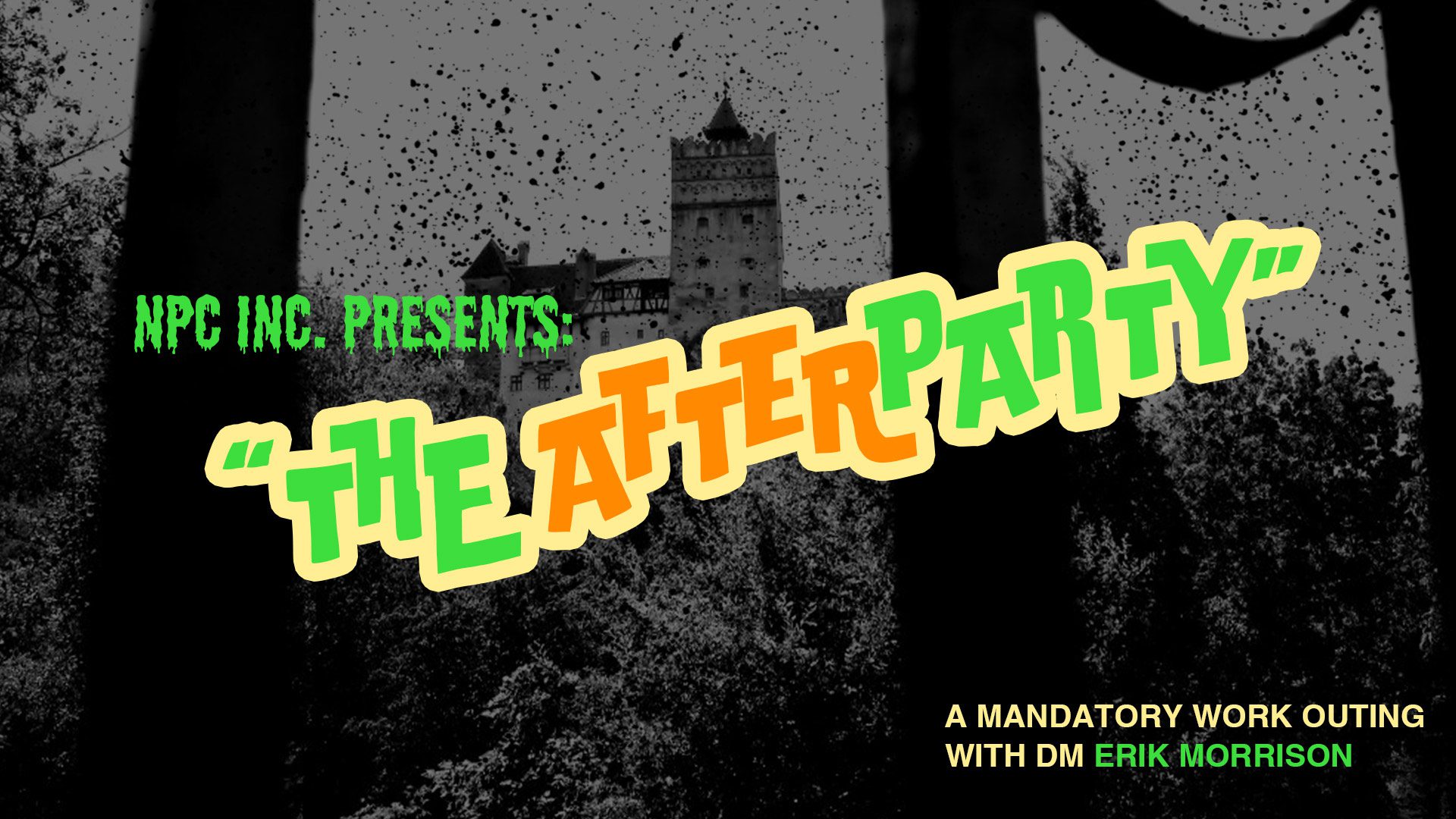This is Off Screen: The Craft of Running The Game, a series where I interview Game Masters of various actual plays to discuss the crunchy craft differences between running a home game and running an actual play.
This episode’s guest is Erik Morrison. They are one of the DMs for NPC Incorporated, an actual play collective that runs campaigns, one shots, offers DM advice, and more. Among the games Eric has ran for NPC Incorporated is Donna Avanzi’s Deception, a no magic D&D two-part mini-series in the world of Scott Lynch’s Lies of Locke Lamora.

Now, in this second episode, I’ve started to identify two major themes in the DMs I’ve spoken to (both on the podcast and off). Those two major throughlines are:
1. Prioritizing player fun at the table will result in a better final product.
2.The improv comedian/musical theatre performer to TTRPG player pipeline is very real.
Now it’s important to remember I’ve spoken primarily to DMs who participate in a certain form of Actual Play. When I set out on creating this series, I did not realize the question of differentiating the technical aspects of home play vs. actual play would open an existential Pandora’s Box. Actual Play is far from a single unified medium.
There are a number of schools of actual play thought, as differentiated by people like AP Scholar Dr. Emily Friedman, World’s Beyond Number producer Taylor Moore. You can hear them speak to these concepts on My First Dungeon or the Talk of the Table podcast with Brian Flaherty and Elliot Davis.
The discussion itself requires its own article but, in (very) short: Moore is of the belief that highly edited actual play that focuses more on narrative is distinct from actual play and should be referred to as narrative play. Dr. Friedman asserts that because actual play is still an unrecognized medium to the larger culture, we should have a unified umbrella term (actual play), and modify the differentiations from that root – live actual play, edited actual play, studio actual play etc.

Circling back to the interview that is the topic of this article, I’ve taken to thinking of Tony and Erik as two individuals who fall into a similar school of actual play, one that I believe is currently the most common. The term I’ve adopted in my own mind for this style of show is Experiential Actual Play – an actual play show that is intended to encompass the full breadth of experience contained within telling a story through a TTRPG. I’ll expand more about what I believe to be the other end of the spectrum (though it may be more of an axis, but certainly not a binary) of actual play – Narrative Actual Play – in later episodes.
In experiential actual play, the artistic objective is to record and capture the feeling of being at the table with minimal editing, with the audience acting as an observer. With minimal editing, the Experiential AP style leans more fully on the personalities at the table, which is why it draws so many individuals with long backgrounds in performance like my first two guests. In that spectrum we have Critical Role and Dimension20, with the former being (famously) “nerdy ass voice actors,’ and the latter being made up of improv comedians.
Given my own background as a musical theatre performer and stand-up comedian, my conversation with Erik focused first on the similarities and differences between Actual Play and Improv comedy, the difficulties of comparing yourself to full-time creatives with funded productions, and when narrative can supersede mechanics.

The following are excerpts from the full interview of this episode of Off Screen: The Craft of Running Games, which you can find on TheFandomentals.com
Erik Morrison: I think [Actual Play and Improv] do inform each other quite a bit. Having an improv background and being able to share a scene, being able to find the fun, find the bit-
Find the game, as they say.
Erik: Exactly. And being able to ride the lightning, so to speak, of a shared storytelling experience. These are the only two things that have felt like this to me. And they feel exactly the same. It almost doesn’t feel like two separate things. Either you’re doing it without dice, in front of an audience, and everyone’s wearing flannel shirts. Or, you’re doing it around a table, maybe with an audience, and it’s more gay.

I don’t know if you ever read them, but there are a series of interview collections by UCB. Ben Schwartz did an interview in one of them where he was recounting a particular improv class where he said, “My improv is terrible. I’m not being funny anymore. Everything’s bad.” And the teacher went, “So do you do anything outside of improv?” And he went, “No.” And so it’s just improv feeding improv.
Erik: Yeah. You gotta have some life experience.
Exactly! But then when you go into TTRPGs, I feel like that doesn’t quite apply. Because you can still do TTRPGs all the time, and you can play different systems and tell different stories, and it will continue to feed itself over and over again.
Erik: I think there is a… I’m rolling my eyes a little bit at some of the improv books that I read when I was just starting out. Where it’s like, trying to treat [improv] as this high art form that’s like improv for improv’s sake. I’m like, you gotta be kidding yourself. Like people are eating chicken tenders and drinking rum and cokes in your audience laughing at you calling it art. And I believe in it as like a performance style. I am a performer and I’m like, improv is great, but it’s also not like the Mona Lisa.
That being said, I think there’s a part of improv that’s very much about the performance and very much about being polished and being a professional in some ways – even if you never get paid for it.

Erik: On the other side a TTRPG kind of demands less of you. It demands more of you as a holistic person, maybe, but it doesn’t demand that you have… I don’t know… relevant life experience? It’s in the same way (as someone who went to school for theater) to be a good actor, you have to be a student of the human condition in a way, which I’m rolling my eyes myself at myself there too.
But a TTRPG encourages you to try something and it’s okay if it fails because you’re not dependent on people laughing. It doesn’t have to be funny. It doesn’t have to be good, It just has to be good for you.
And then your own joy will transfer.
Erik: Yeah. And that’s the secret to good improv though, is the thing.
Oh my god, you have to enjoy yourself?
Erik: I know. But, on the main topic of the interview, I feel like that is one huge difference between a home game and an actual play. It’s something that I try really hard to manage expectations about. We are here to have fun and I think it’s so easy for the performance to get in the way on an actual play.
Critical Role, Dimension 20, whatever you watch I think there’s so much emphasis on preparation and production value. These people are professional voice actors. Especially for someone who’s new to a game, or new to actual plays, they’re so worried about looking good on an actual play stage. So that is one thing you don’t tend to have to remind people about in a home game, but it is really important, I think, when DMing an actual play.
Let’s all take a breath. I’m gonna make mistakes, you’re gonna make mistakes, it’s fine. Forget the cameras are there.

You can go to Spotify or wherever you listen to podcasts for the full interview with Erik. You can also see them live in Chicago, where they produce Thirst For Adventure, a live-action, rules-light D&D show with a rotating cast of improv comedians.
You can find Erik on Instagram, Twitter, and Tiktok at @ErikMoreover; and on Bluesky as ErikMorrison.
***
Have strong thoughts about this piece you need to share? Or maybe there’s something else on your mind you’re wanting to talk about with fellow Fandomentals? Head on over to our Community server to join in the conversation!

